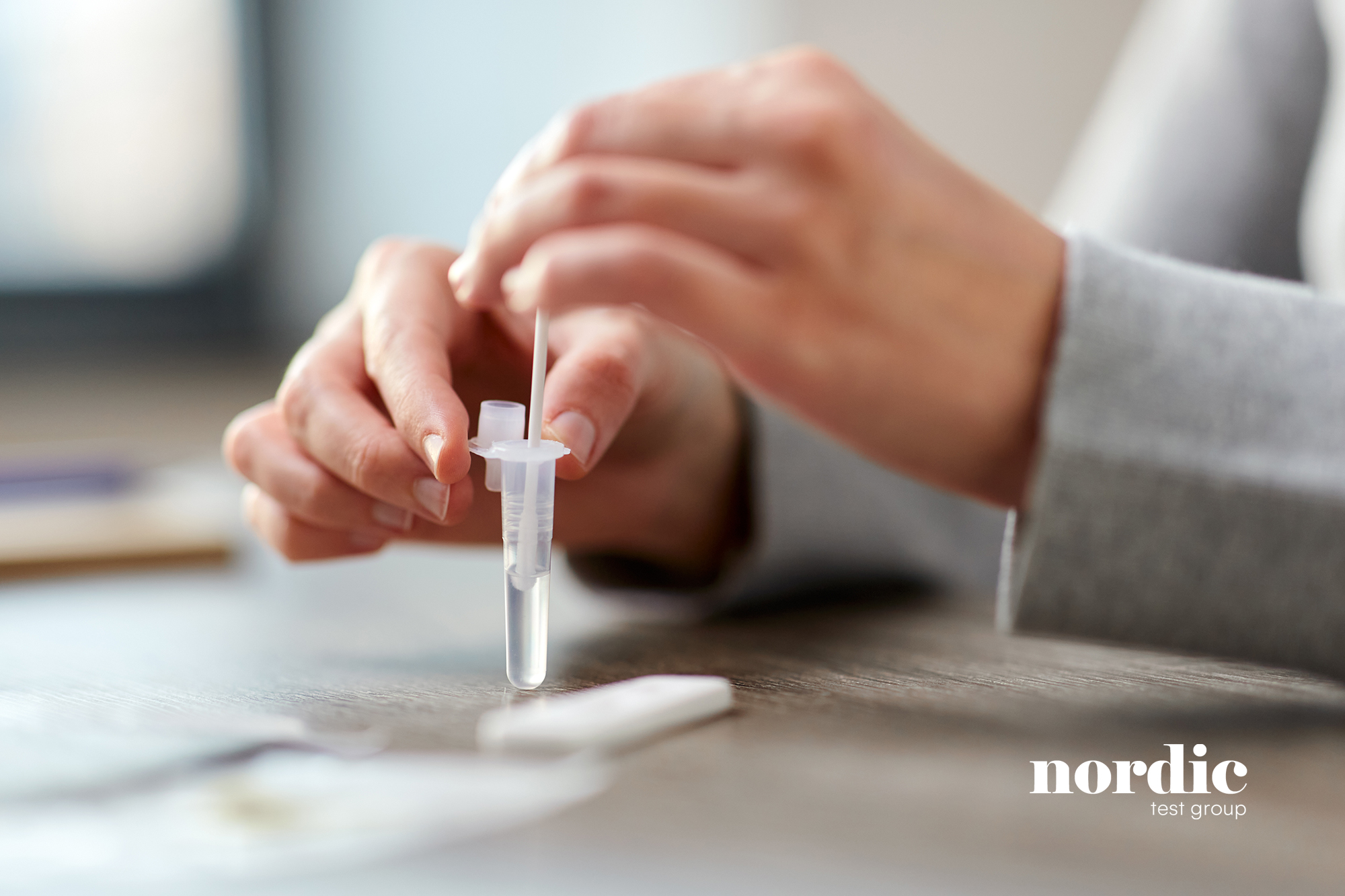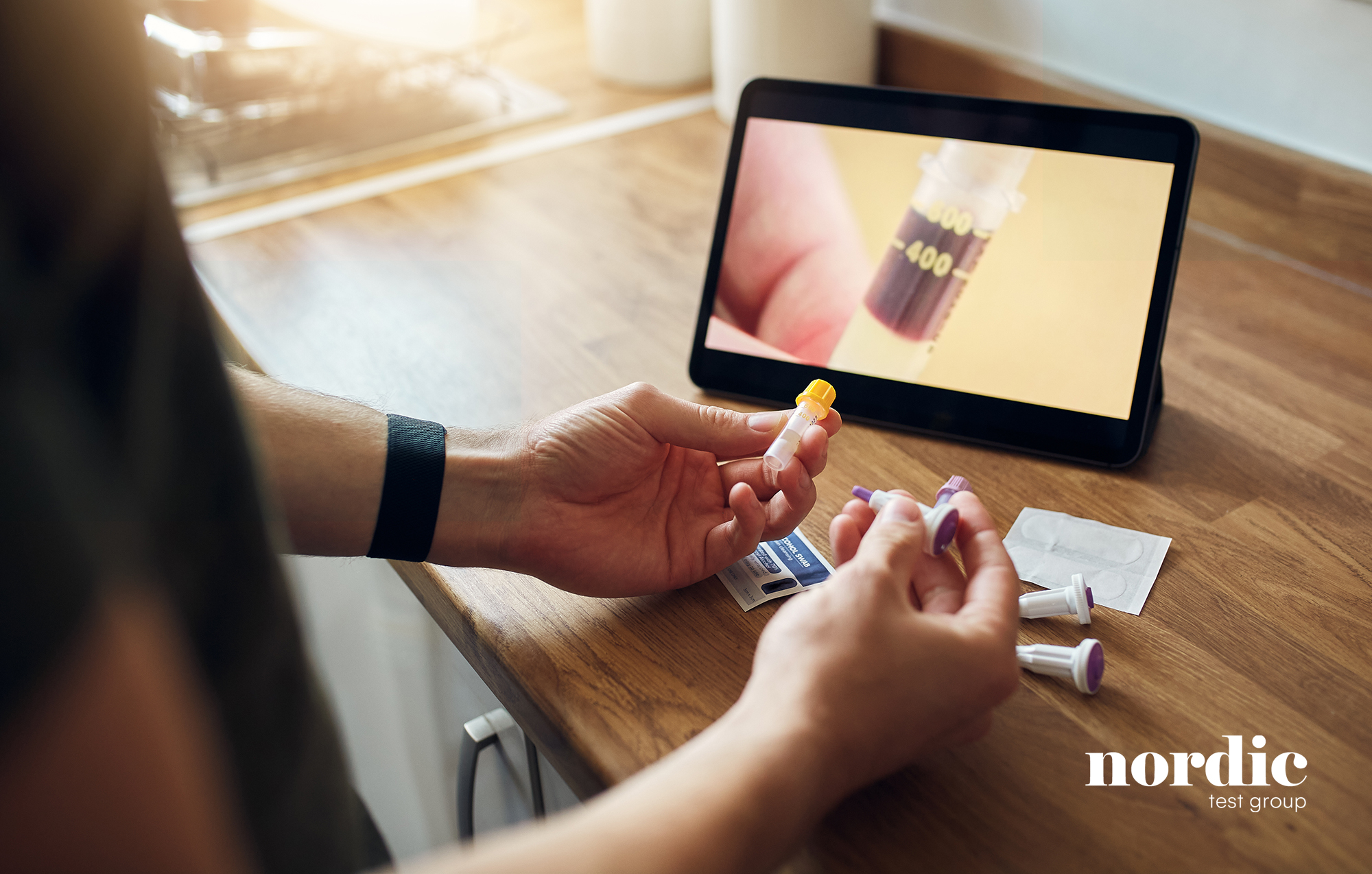When should I take a fasting home test?
Published 2024-01-22 03:06 by Nordictest
There are several home tests where fasting before the test is necessary. The importance of fasting depends on the type of test. Perhaps you have experience with taking blood tests at the healthcare center and receiving instructions not to eat or drink anything on the morning of the test. This is similar to the procedure for home tests that require fasting.
When it comes to home tests, it's crucial to note when fasting is required. If you miss this requirement, it's not worth sending the test to a lab as it may yield inaccurate results. If the test specifies fasting, it's important not to cheat on this.
Normally, blood tests that require fasting involve fasting for 8 to 12 hours before the test. You can usually drink water, but nothing else, as what you eat and drink can enter your bloodstream and affect the blood test results.
Examples of blood tests that may require fasting include:
-
Blood Sugar Test – This test measures the level of blood sugar. It is used, among other things, when diabetes, prediabetes, or gestational diabetes is suspected. You can take a diabetes test at home, and it's essential to schedule the test correctly with the recommended fasting.
-
Cholesterol Test – With a cholesterol test, also known as a lipid panel, you measure the levels of fats in the blood. It checks for fats like cholesterol and triglycerides. This test can indicate the risk of heart disease.
-
Metabolic Panel Test – The Basal Metabolic Panel test, as it's called in English, is a group of tests that measure various chemicals naturally present in your blood. This test can provide information about how well organs like the heart, kidneys, and liver are functioning.

What is meant by fasting?
When you need to take a home test on an empty stomach, it's crucial to understand what fasting means. You won't have healthcare professionals to explain this to you.
Many people do not realize what fasting entails. It may seem like it's just about abstaining from solid food, but that's not the case. According to Läkemedelsverket (the Swedish Medical Products Agency), fasting is considered to be 2-3 hours after the last meal when it comes to medications that should be taken on an empty stomach. However, for tests, it often requires more hours of fasting after the last meal.
Typically, it works well to take a test that requires fasting in the morning. Assuming you stopped eating around 8 p.m. the night before, you will have fasted for 12 hours when you test yourself at 8 a.m. in the morning. This is usually sufficient.
Beverages that break the fast
It's not just the consumption of solid food that breaks a fast. You can drink water, but you should avoid juice, milk, coffee, and soda because these beverages can affect the results of your test. Even a beverage like coffee can impact your insulin levels, even if you don't add sugar or milk. However, drinking water can be beneficial as it increases the fluid volume in your veins, which can facilitate the blood test.
If you accidentally eat something too close to a fasting-required test, it's essential to either postpone the test or consult an expert on what to do. It's possible that what you consumed may not affect the test, but it's better not to guess!

Fasting when taking medications
If you are taking medications that should not be taken on an empty stomach, you need to figure out how to handle your fasting-required test. It may be possible to adjust the timing of your medication, either earlier or later than your usual schedule.
It's essential not to discontinue medication to take a home test without first consulting knowledgeable healthcare professionals.
Some tests also require specific diets
It should also be mentioned that there are home tests that not only require fasting but also specific dietary restrictions before the test. Our SIBO test is a good example of this. When you take our SIBO test at home without a doctor's visit, it's crucial to understand how to eat and what to avoid eating before the test.
If you have undergone antibiotic treatment, you must wait four weeks after it before testing. The same applies after a colonoscopy, barium enema, or if you have had diarrhea. In the week before the test, you should not use any laxatives and must avoid acid-binding agents that may contain aluminum and magnesium hydroxide.
Two days before the test, you should avoid probiotics and alcohol, and you will also receive instructions on the types of foods you can eat. Two days before the test, you should not consume anything with sugar, sweeteners, milk, or cream. Twelve hours before performing the SIBO test, you should only drink water and nothing else, not even mouthwash or toothpaste!
As we can see, some tests require more than just fasting a few hours before the test. Given this, it's essential to familiarize yourself with the requirements of a home test you are conducting. Always read the instructions carefully. It's unnecessary to send a test to the lab and then wait for results that won't be accurate because you didn't fast or ate food you shouldn't have in the days leading up to the test.
